Healthcare Advocacy: Everything You Need to Know in 2023
Posted by Pankaj Dhiman on Oct 31st 2023
Healthcare Advocates: What They Do, Why They're Important, and When to Hire One
In a complex and often baffling healthcare landscape, many individuals find themselves struggling to access the care and support they need. This is where healthcare advocates come into play. Whether you've never heard of healthcare advocates or you're curious about their role, this guide will provide you with valuable insights on what healthcare advocates are, why their work is crucial, when you should consider hiring one, the common challenges they face, and the latest trends in healthcare advocacy for 2023.
What is a Healthcare Advocate and What Do They Do?
Healthcare advocates, also known as patient advocates or medical advocates, are professionals who help patients and their families navigate the intricate healthcare system. They act as intermediaries, assisting patients in understanding their medical options, making informed decisions, and advocating for their rights within the healthcare system. Here are some of the key responsibilities of healthcare advocates:
1. Providing Information: Healthcare advocates offer information about medical conditions, treatment options, and healthcare providers. They break down complex medical jargon into plain language, making it easier for patients to comprehend their situation.
2. Support in Decision-Making: They help patients and their families make informed decisions about their healthcare, ensuring that the chosen path aligns with the patient's values and preferences.
3. Assistance with Administrative Tasks: Healthcare advocates can aid in filling out paperwork, coordinating appointments, and dealing with insurance companies, reducing the administrative burden on patients.
4. Emotional Support: They offer emotional support during difficult times, providing a caring presence to alleviate stress and anxiety.
5. Advocacy: Healthcare advocates act as strong proponents for their clients, ensuring that their rights and interests are respected within the healthcare system.
Must Read - How to Choose the Right Medical Supplies for Your Needs
Why is Healthcare Advocacy Important?
Healthcare advocacy plays a vital role in ensuring that patients receive the best possible care. Here's why it's so important:
1. Navigating Complex Systems: Healthcare systems can be daunting, with various providers, insurance plans, and treatment options. Advocates simplify this complexity, ensuring that patients understand their choices and the steps they need to take.
2. Ensuring Informed Decisions: Making medical decisions can be overwhelming. Advocates help patients make choices that align with their values and preferences, ensuring that they have control over their healthcare journey.
3. Reducing Stress: Coping with a health issue is already stressful. Advocates offer emotional support and help alleviate some of the anxiety by managing administrative tasks.
4. Protecting Patient Rights: Healthcare advocates ensure that patients are treated with respect and that their rights are upheld, making them essential in scenarios where patient advocacy is required.
Must Read - Navigating the US Healthcare System: A Step-by-Step Guide
When Should You Consider Hiring a Healthcare Advocate?
The decision to hire a healthcare advocate depends on your individual circumstances. Consider seeking their assistance in the following situations:
1. Complex Medical Conditions: When dealing with a complex or chronic medical condition, an advocate can help you understand your options and make the best choices for your health.
2. Navigating Insurance: If you're struggling to understand your insurance coverage or facing disputes with your provider, a healthcare advocate can help you decipher the complexities of healthcare insurance.
3. Facing Medical Crisis: During a medical crisis, having an advocate by your side can provide invaluable support, ensuring you receive the best care possible.
4. Lack of Time or Knowledge: If you lack the time, knowledge, or emotional strength to manage the intricacies of your healthcare, a healthcare advocate can step in.
Must Read - The Healthcare Worker Shortage Crisis
Common Challenges Healthcare Advocates Face
While healthcare advocates offer essential support, they encounter challenges in their work:
1. Limited Availability: Advocates may have a limited number of clients, which can lead to waiting lists and difficulties accessing their services.
2. Insurance Coverage: The cost of hiring a healthcare advocate is not always covered by insurance, making it a financial burden for some patients.
3. Complex Cases: Some cases may be exceptionally complex, requiring extensive time and effort from the advocate.
4. Emotional Strain: Advocates often deal with emotionally charged situations, which can take a toll on their well-being.
Must Read - Supporting Healthcare Workers: The Bttn Initiative
Tips for Healthcare Advocates
For those considering a career in healthcare advocacy, here are some essential tips to excel in this role:
1. Continual Learning: Healthcare is a rapidly evolving field. Stay up-to-date with medical advancements, healthcare policies, and patient rights.
2. Effective Communication: Develop strong communication skills to convey complex medical information clearly and compassionately.
3. Emotional Resilience: Being an advocate can be emotionally challenging. Build emotional resilience to cope with the stresses of the job.
4. Networking: Build a network of healthcare professionals, social workers, and other advocates to share information and resources.
Healthcare Advocacy Trends in 2023
As we move into 2023, several trends are shaping the world of healthcare advocacy:
1. Telehealth Advocacy: The growth of telehealth has created new opportunities for advocates to assist patients in navigating digital healthcare platforms.
2. Patient Empowerment: Advocates are increasingly focusing on empowering patients to take an active role in their healthcare decisions.
3. Mental Health Advocacy: With a growing emphasis on mental health, advocates are playing a significant role in connecting patients with appropriate mental health resources.
4. Technological Advancements: Technology is streamlining the work of advocates, making it easier to access and manage healthcare information.
In conclusion, healthcare advocates play a crucial role in helping patients and their families navigate the complex world of healthcare. Their services are invaluable, offering support, information, and advocacy when it's needed most. If you find yourself overwhelmed by medical decisions, insurance issues, or a complex medical condition, consider reaching out to a healthcare advocate. In 2023, as healthcare continues to evolve, these professionals will be at the forefront, helping patients make informed choices and providing the support necessary for a healthier future.





























































